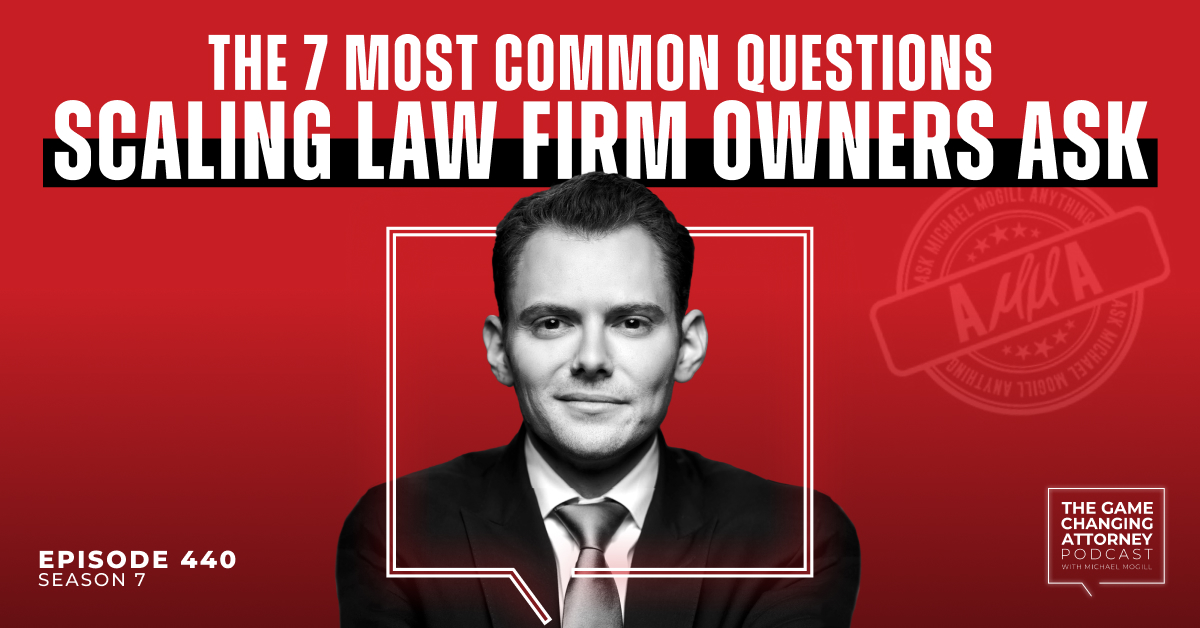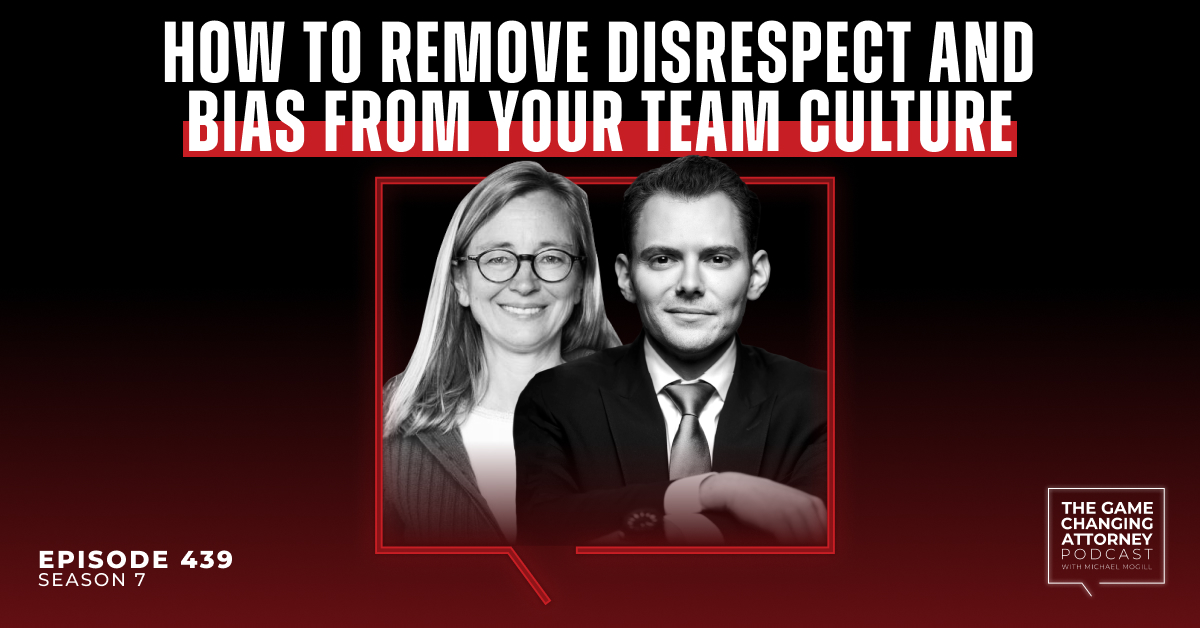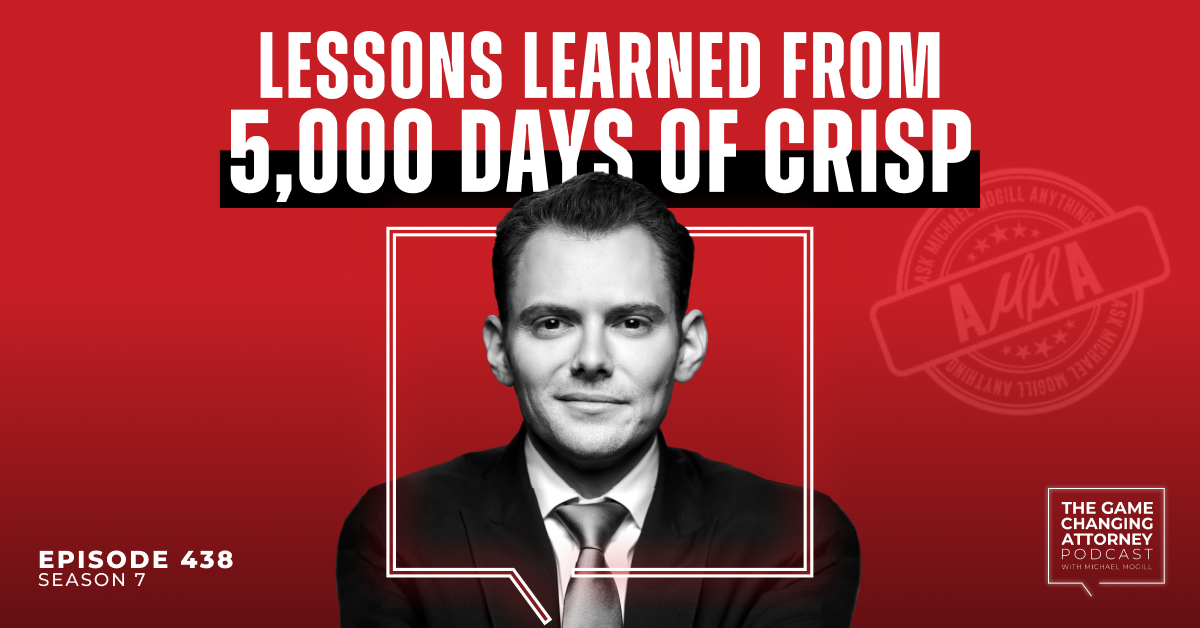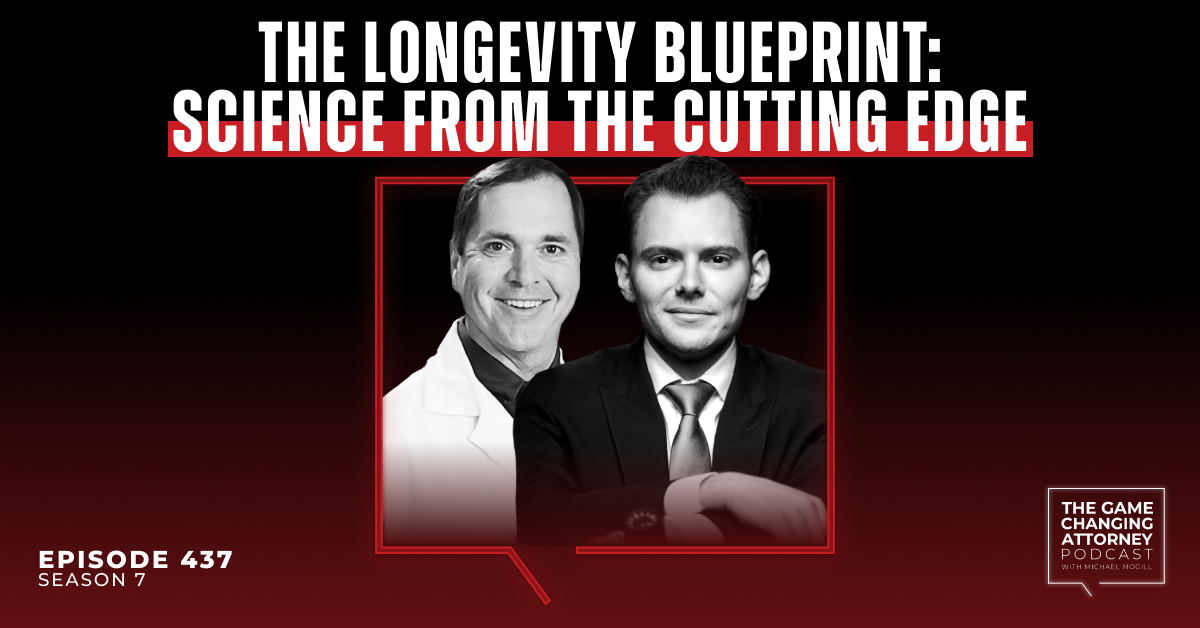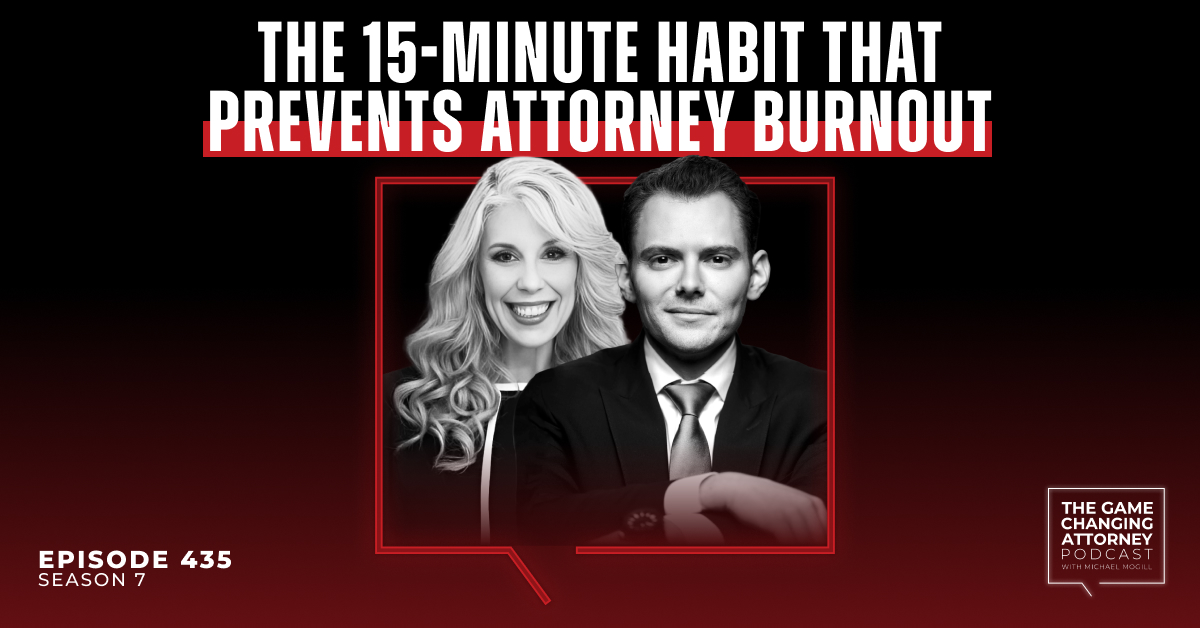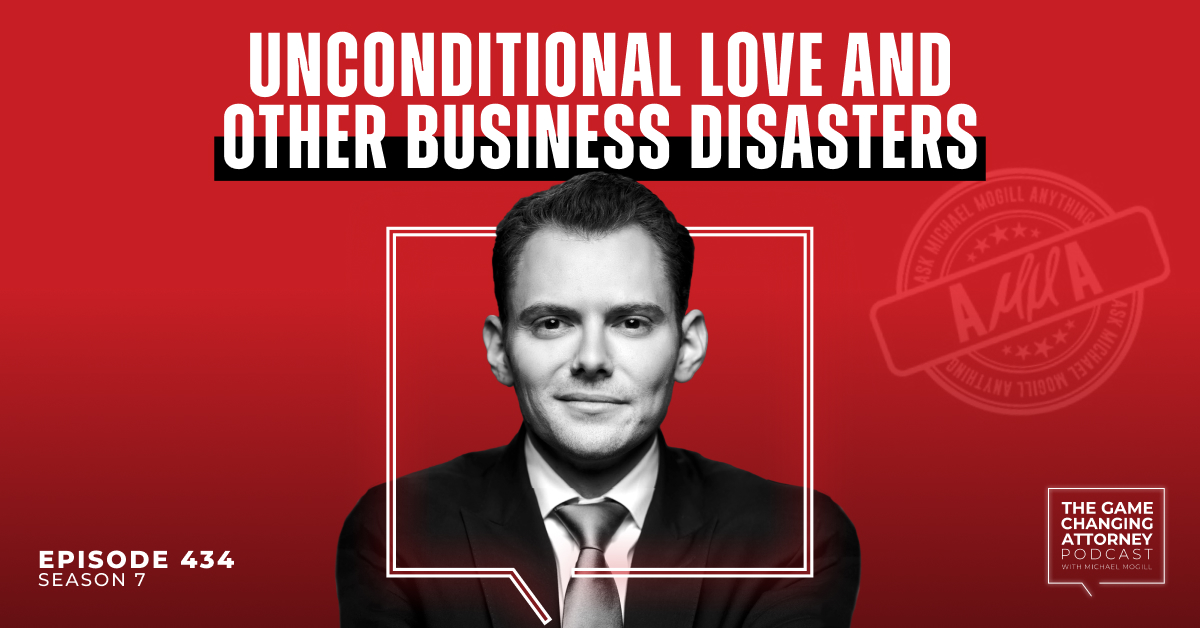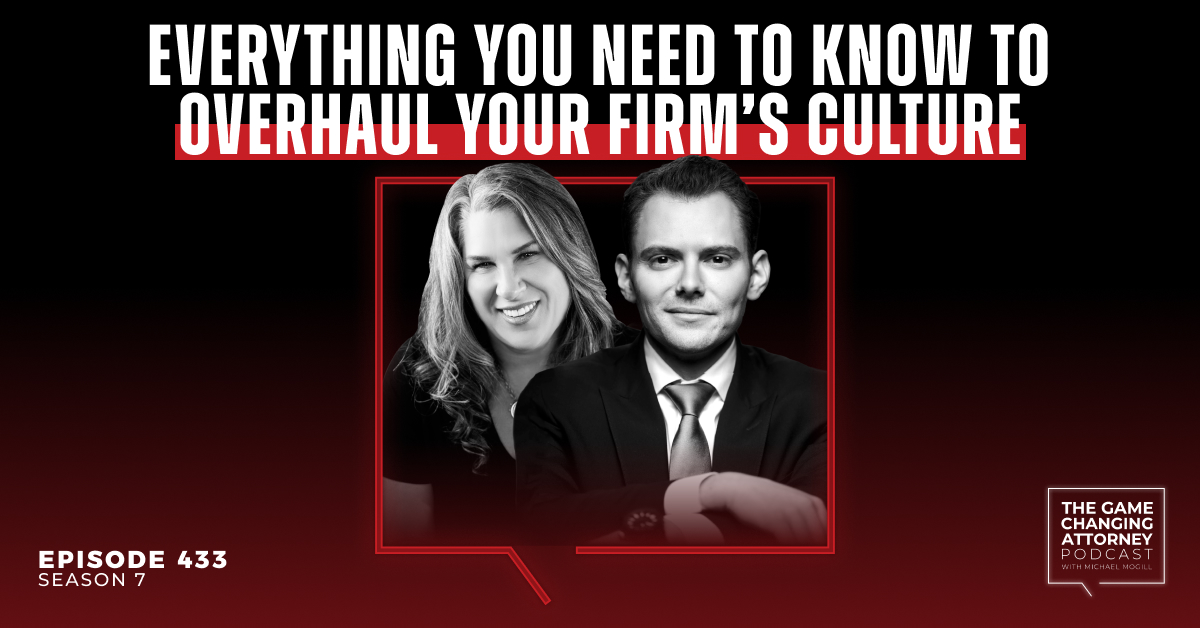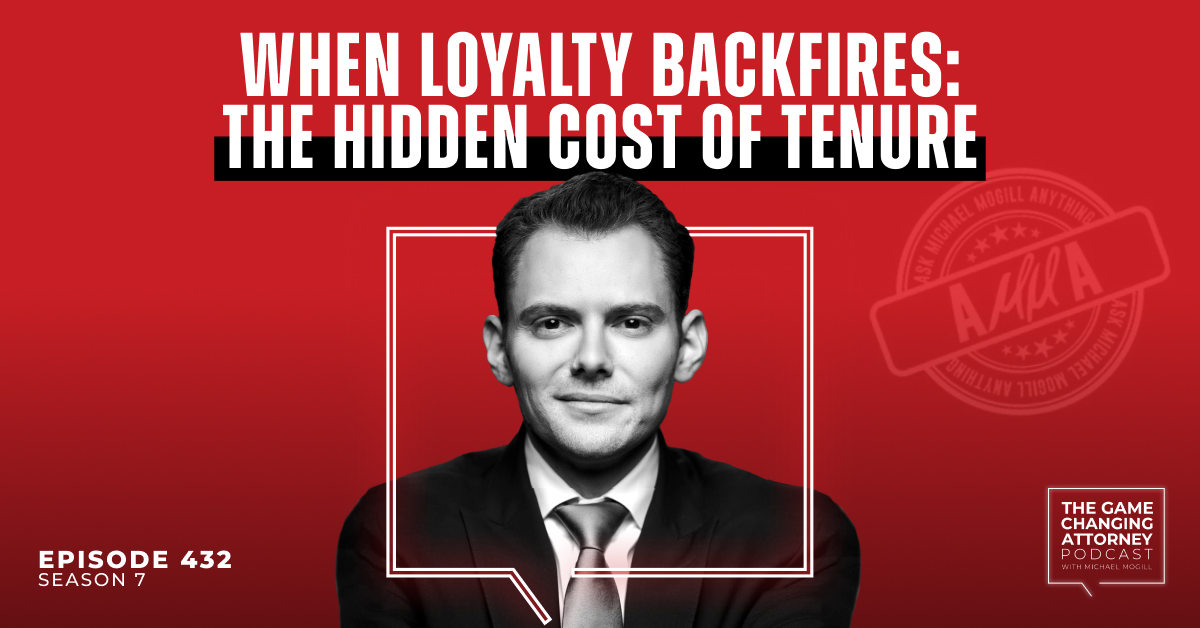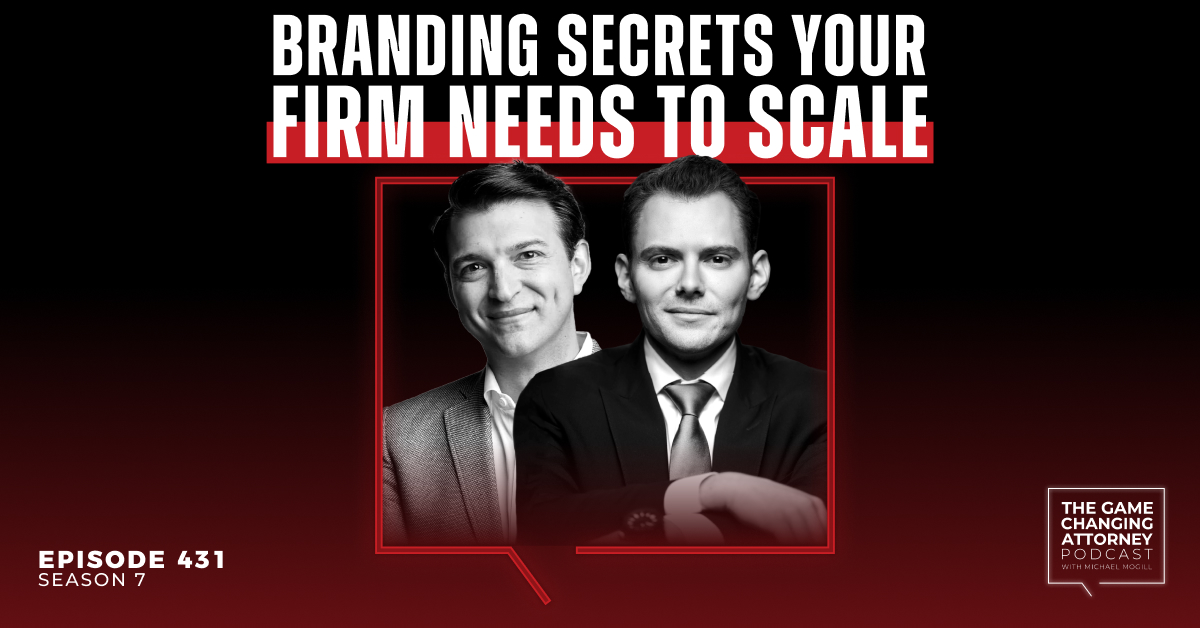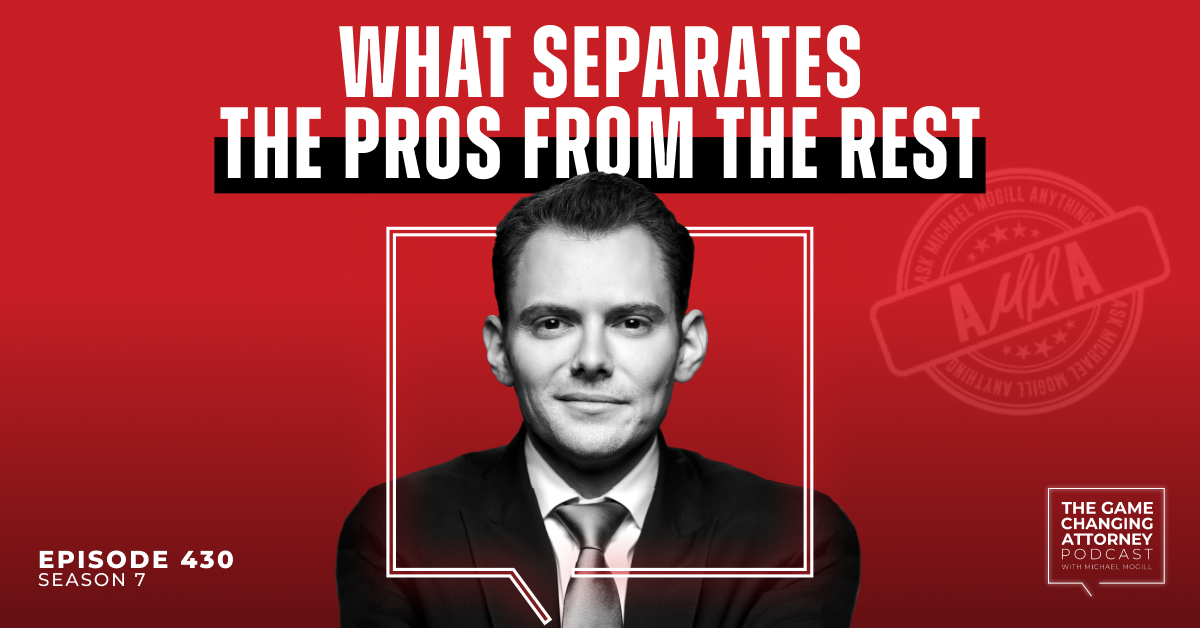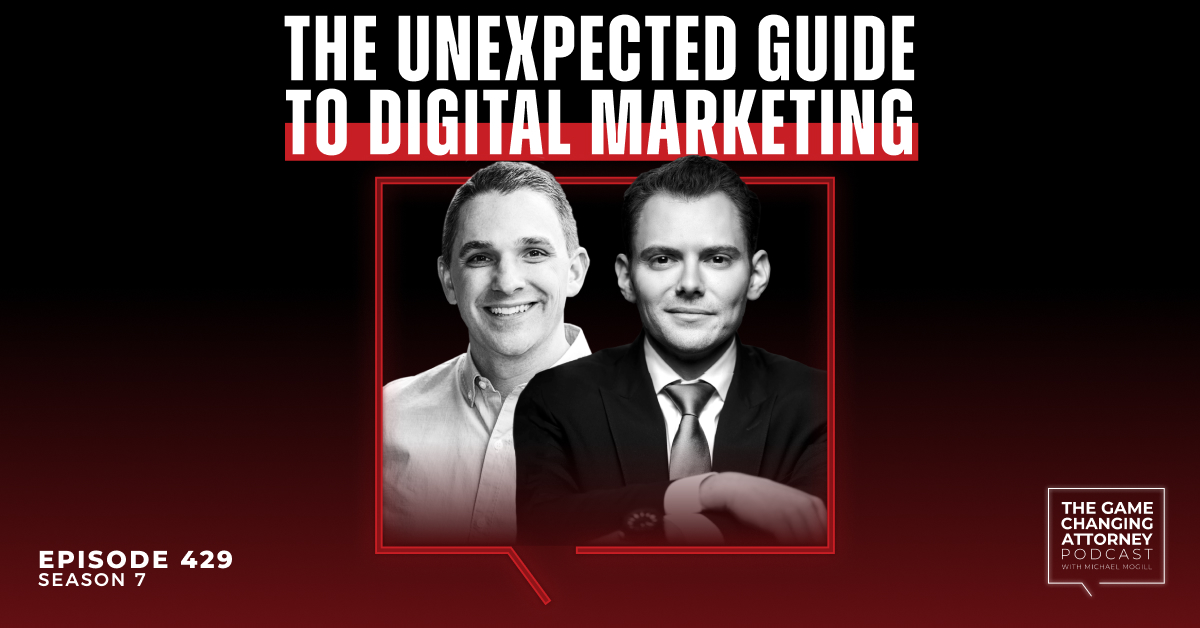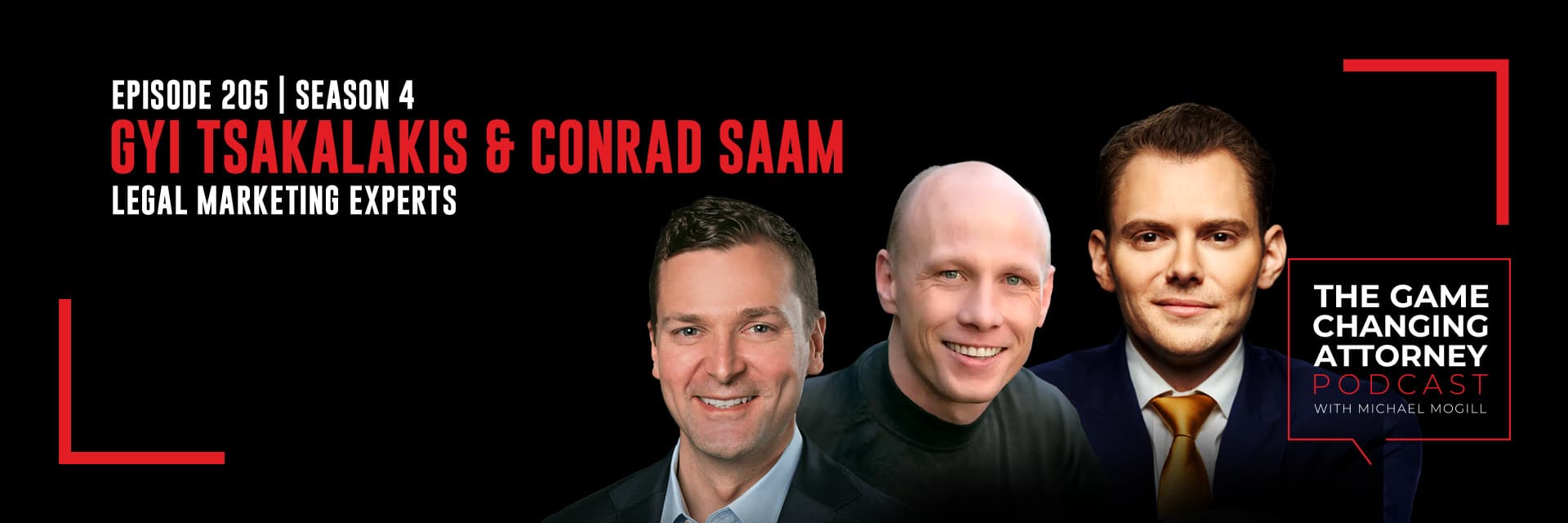
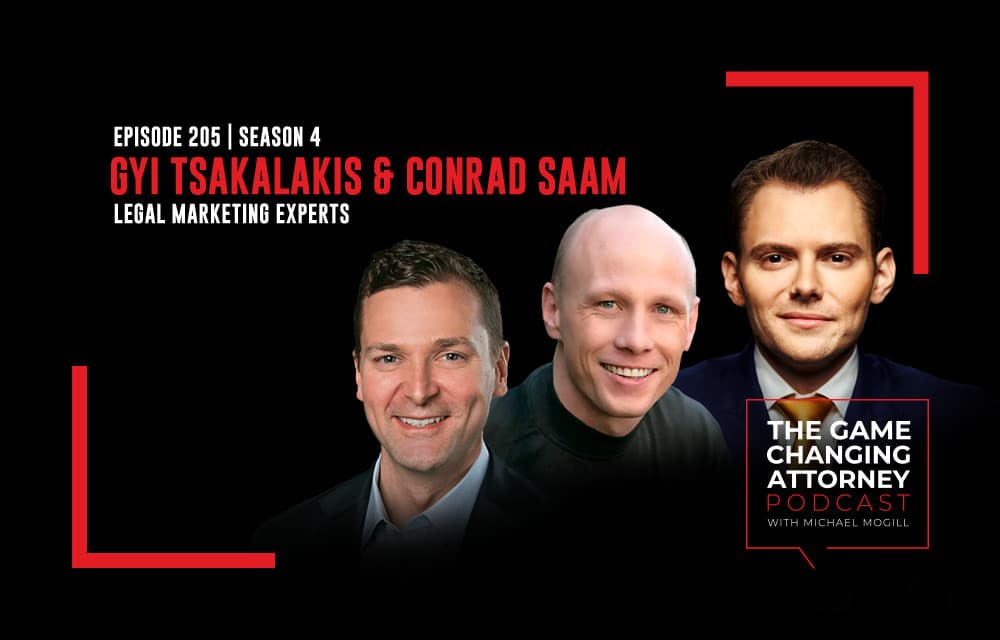
Episode 205 — Gyi Tsakalakis and Conrad Saam — Marketing Mash-Up: Scalable Strategies from Industry Experts
Mockingbird Marketing President Conrad Saam. AttorneySync President Gyi Tsakalakis. Crisp Founder & CEO Michael Mogill.
Three legal marketing experts. One unforgettable conversation.
In this episode of The Game Changing Attorney Podcast, these savants sit down to discuss:
- What it means to focus on strategy over tactics
- The importance of running a law firm like a business
- When to build an in-house marketing team and when to partner with an agency
- Why it’s easier to build a personal brand than a business brand
- How AI will change the legal space (and what will always stay the same)
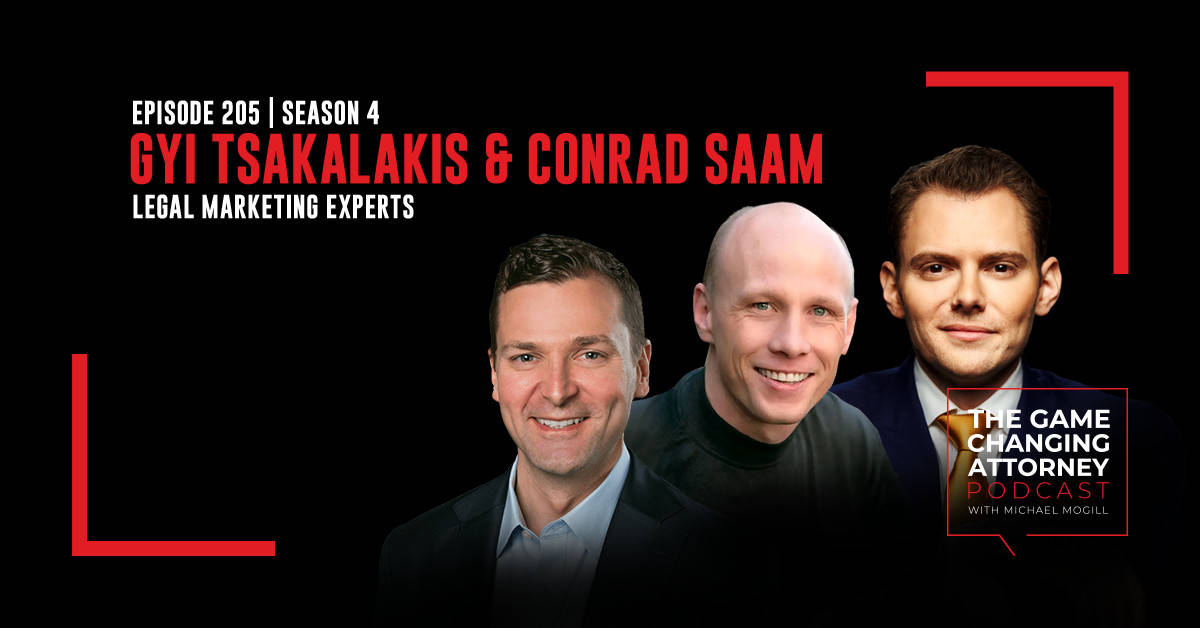
Listen & Subscribe
Show Notes:
Chasing tactics is not the answer. “All it results in is these random acts of marketing. Some people are chasing shiny objects. Your new platform comes: ‘I got to get on there.’ Maybe you’re copying somebody else, which I’d always find to be so funny. The whole point of marketing is to stand out, and your first instinct is go copy somebody. That’s antithetical to standing out, doing what somebody else is doing. But you know strategies — that’s like the blueprint. It’s the game plan. What are we trying to do? The tactics are the pieces that get you there, but so many people are so focused on the tactics.”
Lawyer to CEO. “They eventually get to a point where they have a solid understanding of the business economic reality, and to me, that means they probably have a leader who has gone from lawyer to CEO. A lot of law firms have metrics. We’re talking dashboards galore. It’s not like there’s a paucity of data. What’s lacking is the insight and the analysis of that data that makes you better. I think those firms that can get beyond, ‘Oh, here’s my dashboard; we’re doing great,’ to actually understanding the business metrics that should be on the dashboard and what you can do to what you can do from them: ‘What’s the context of that data and how do I improve that data over a long, long, long period of time?’ The ones that have done that repeatedly, you’ll see we’re 2 percent better, we’re 3 percent better, we’re 6 percent better. You do that year in, year out, you have a really, really solid firm. And if during that time, part of your plan is to build brand affinity and awareness, that is a persistent asset that makes all the other stuff work better. It just does. Those are the two elements to me.”
Who should be in-house? “The ideal stack is I really look at this as a leadership person in a law firm who has control over CRM system data and how data flows within those things to make sure that they are accountable for the accuracy of that data, and they are actually accountable for making sure that that data improves. But the tactical pieces, I think you want to outsource a lot of that from an expertise perspective.”
The case for a hybrid marketing team. “It’s hybrid for a lot of the reasons that you just said. The biggest ones that come to mind are usually the economic metrics around the in-house team start to not add up because for all the different skill sets you need, you really need to be the dominant force. You’re not finding that in one person. You’re talking a team. The other thing I always tell people when they ask me, ‘Why don’t I just do this in house?’ And you know, this isn’t just specific to law firms. Businesses all across the country have this same conversation with their internal teams all the time. There’s a lot of strength that they have because they know the business. They’re on the ground, especially in professional services because they’re right next to all the leaders. They know what the personality is. From a content development standpoint, they’re going to tease out that message a lotbetter, I think, than a lot of agencies will. But then you compare that to the cost of a fractional resource that you get from an agency where you get all these different disciplines. That’s why the hybrid makes so much sense.”
The ROI misconception. “What drives me crazy is when people are like, ‘Oh, they’re taking over the market. Their ROI must be amazing.’ It’s probably not. It means that they’re running extremely efficient, that they have much lower margins and they know this and they are okay with it and they’re optimizing for their appropriate cost per client and whether they can run the production of what their work is really, really efficiently — and that is not an ROI conversation. ROI is a percentage. If you are really maximizing your ROI, you’re giving up business because you’re not willing to trade today’s profit for tomorrow’s revenue. I think it’s something that’s missed by the industry. We talk about ROI all the time, but we also talk about like maximum ROI and dominating a market. Those two things are conflicting because ROI and volume are negatively correlated.”
Trust but verify. “Don’t just blindly follow folks because they got a lot of followers or — as some of them have admitted — they got lucky: maybe they took a case on early on in their career and made a lot of money, and since that point, it’s funded a lot of the stuff they’re able to do. It doesn’t mean that they’re still delivering great service and growing and building a team and trying to do all the things that you’re trying to do. You’ve got to peel back the layers.”
Start with personal brand. “It is so much easier to build a brand as a person than as a law firm. There’s literally built into the words ‘personality,’ and as your firm gets bigger, that becomes harder and harder to control. There is so much value in and it’s just easier. You’re talking about going out in the community, right? It’s easier to build that brand. You can put your logo over everything, but ideally that represents the person and it fits with that person’s branding and messaging. I really believe that there’s so much more that you can do.”
How AI is impacting the industry. “It’s an assistive tool. We use it for content ideation, for outlining content. It helps identify blind spots for things you wouldn’t have thought about. I think it can make some of your communication processes much more efficient because you can create a seed and let generative AI come up with different versions with different voice and tone for emails you might use. I know Lawmatics has implemented some of that. I know some of the other legal tech products are putting that kind of stuff in there for analysis. Google Analytics has had AI-assisted insights and analysis for years. The Google Ads product also does. It’s not that awesome, but the insights and analysis stuff can be super powerful because it can take in a lot of data and find patterns faster and better than we can. Those are some of the ways that we’ve seen, at least in the past year. You can’t just ignore it.”
RESOURCES & REFERENCES
Avvo
TikTok
Pay-per-click (PPC)
Pokémon GO
Local Service Ads (LSAs)
Google Business Profile
Entrepreneurial Operating System (EOS)
David C. Baker
Search engine optimization (SEO)
Customer Relationship Manager (CRM)
CallRail
Clubhouse
Google Ads
Facebook
LinkedIn
Gary Vaynerchuk
Morgan and Morgan
Joe Rogan
Spotify
YouTube
Artificial intelligence (AI)
Non-fungible tokens (NFTs)
Ray Kurzweil
Lawmatics
WordPress
ChatGPT
Tom Martin
United States Department of Justice (DOJ)
Smith & Jones
Ryan McKeen
Connect with Michael
- Text directly at 404-531-7691
